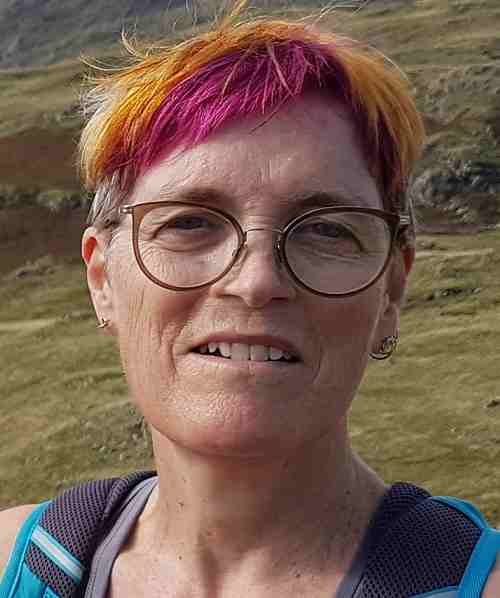Life as an Autistic Professor
When you read the words ‘autistic Professor’, I’m guessing some people may be surprised to find out that I’m a woman. When I was a child in the 1960s and 1970s, there were very few autistic children, and it was generally believed that only boys were autistic.

I was always a bit ‘odd’. I found social interaction difficult, and had my obsessions with Greek mythology, as well as cataloguing my books, records, and photographs. I think my ‘oddness’ was noticed at junior school, as I was taken out of class for fast stream maths and always treated as a bit weird and geeky.
I’m lucky to have an older sister and copied a lot of her social behaviours; this is called ‘masking’, and sometimes I feel that I lose myself by doing this. Masking is one of the reasons that fewer girls and women are assessed for autism, as we are encouraged to learn (mimic) acceptable social behaviour and hide our ‘weirdness’. I’ve been doing this for decades, so when Emma Nadin suggested that I should join the Inclusivity Group, my first response was, ‘you don’t want me there – I’m too weird!’.
As an adult, I moved around a lot and hid my differences by only staying in a job for 1-2 years at a time and living in different parts of the world. Eventually one of my obsessions led to a part-time PhD, and this opened the door to academia. My ability to focus on a single issue is useful for research but creates problems in other parts of my life. I can find attending meetings and conferences overwhelming. I will periodically ‘crash’ – the same as when I was a small child, only as an adult I don’t lie down in the corridor and have a blanket put over me – I instead retreat by leaving the room and/or putting up a ‘do not disturb’ sign.
In my 50s, there was more information about autistic women, and I did online tests which showed that I was probably autistic. As retirement approached, I became very anxious about this major life change and decided that it was time to know more about myself. So, when I was 59 years I was assessed and diagnosed as autistic with difficulties in:
- Social communication: I find it hard to follow jokes and can be very direct/blunt.
- Social interactions: I struggle with timing in conversations and often interrupt – I know this is very annoying for others. I also obsess about interactions: did I get it right/wrong, have I upset someone? I also know that others can find it hard to ‘read’ my face and misunderstand me.
- Flexibility of thought: this is a very common autistic problem, with dichotomised (polarised) thinking. I ‘know’ when I’m right, which can be useful for academic defence but not great for social interactions.
- Unusual sensory experience: I’m very sensitive to noise, lighting, and smells, so being at a networking meeting or dinner party can be like standing in a sandstorm with my senses on overload. It’s really exhausting to concentrate, talk and generally interact in these situations whilst trying to act ‘normally’ (masking).
I disclosed the diagnosis to the University and had a supportive meeting with the Occupational Health team. I’m now in my 60s and my diagnosis has helped me to be kinder to myself and more accepting of my ‘weirdness’. It’s ok to say ‘no, thanks’ to meetings, conference dinners, university social events, etc. It does mean that I miss out on opportunities, and I guess that colleagues will continue to think that I’m weird and not very sociable, but at least I’m not as exhausted by ‘masking’.
If you want to know more about autism in women and girls, ‘A Kind of Spark’ by Elle McNicoll includes three neurodivergent female characters at different life stages. It tells the story of an 11-year-old girl campaigning for a memorial for Scottish women (witches) who were persecuted and burned for being ‘different’.
…I’m glad that I was born in the 20th Century!
Professor Sue Hignett
Professor of Healthcare Ergonomics and Patient Safety
This piece was written to mark Neurodiversity Celebration Week (21-27 March). Any staff member with a physical or hidden disability is welcome to join the Staff Inclusivity Group, which advocates for equality in the workplace for colleagues with physical or invisible disabilities. The group is also a place to seek support from one another and challenge University policies and practices.
Equity, Diversity and Inclusion
Reflections, comments, discussion and opinion on EDI topics from Loughborough University staff and students